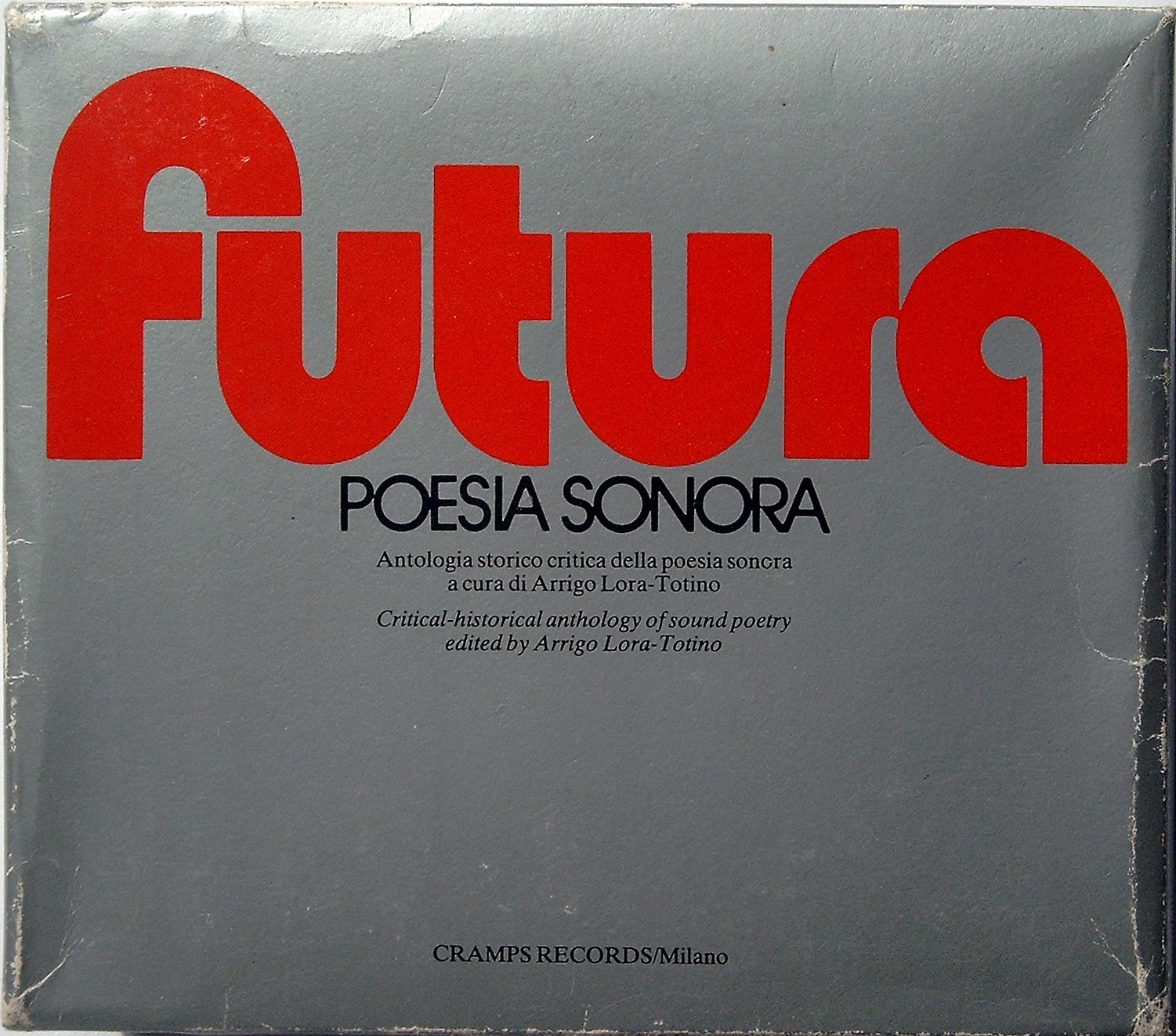Dune (parole in libertà) (1914)
Filippo Tommaso Marinetti

Title of the compilation: Futura. Poesia Sonora
Title: F.T. Marinetti: Dune (Track 02)
Publisher: Cramps Records, Milano
Date: 1978
Medium: 5 cd + booklet in box
The poem Dune by Filippo Tommaso Marinetti was published in 1978 on the record edition Futura. Poesie Sonora, edited by Arrigo Lora-Totino. How Marinetti reads some of his sound poems was recorded as early as 1935, including the poems Battaglia, Peso + Odore from 1912, Dune (parole in libertà) from 1914 and La Battaglia di Adrianopoli from 1926. There are no instructions on how to decode and perform the sound poem Dune from paper with its scattered word clusters. The unusual graphic arrangement in Marinetti's poem Dune is reminiscent of the presentation of the poems of the French poet Stephane Mallarmé. For example, the size of the letters continuously decreases towards the end of a word, part of the text is arranged in rows, and some words are printed in bold. The poem is a realisation of Marinetti's concept of liberated words, and this is already the subtitle of the poem parole in libertà (words in freedom).
The concept of liberated words is based on the Manifesto tecnico della letteratura futurista, which Marinetti wrote in May 1912. In it, he propagated the complete abandonment of all grammatical structures; among other things, syntax was to be destroyed, adjectives and adverbs abolished, punctuation abolished, and the mathematical signs : + - x : = > < and the musical signs should be used instead. Furthermore, it is said, the three elements of noise, weight and smell are to be incorporated into literature.
With poems such as Dune, Marinetti himself provided examples of this kind of lyric poetry, freed from all linguistic rules, which not only approaches music in its tonal quality but also resembles the score of an orchestral piece more than a poem in its printed image. The meaning of language is created through subjective associations.
Marinetti's poems are very revolutionary both in their form and in their ideas. The fragmentation of language, the dissolution of its meaning and finally, the blurring of the boundaries between language and music was later taken up by the Dadaists and then carried out even more radically.
PS